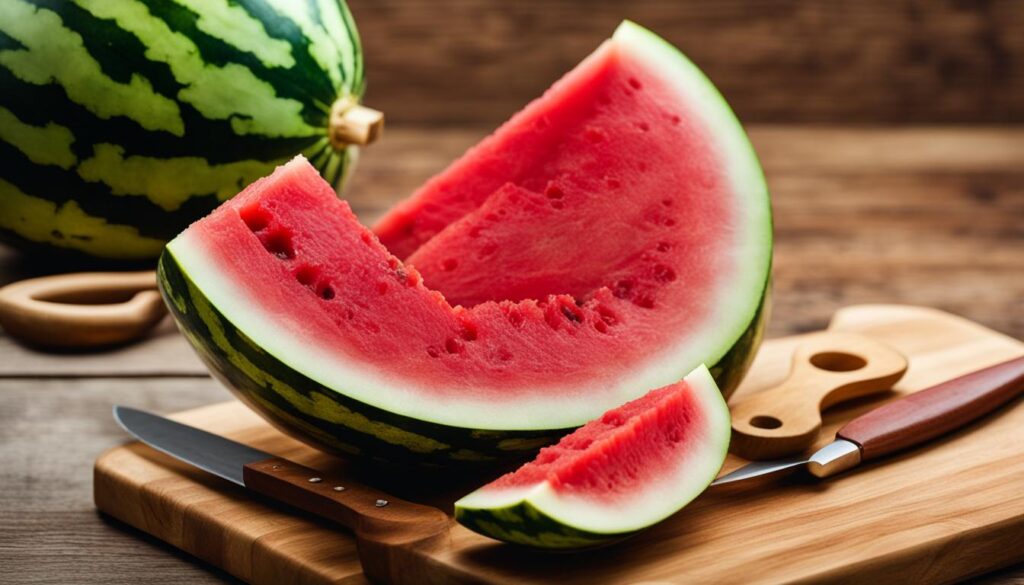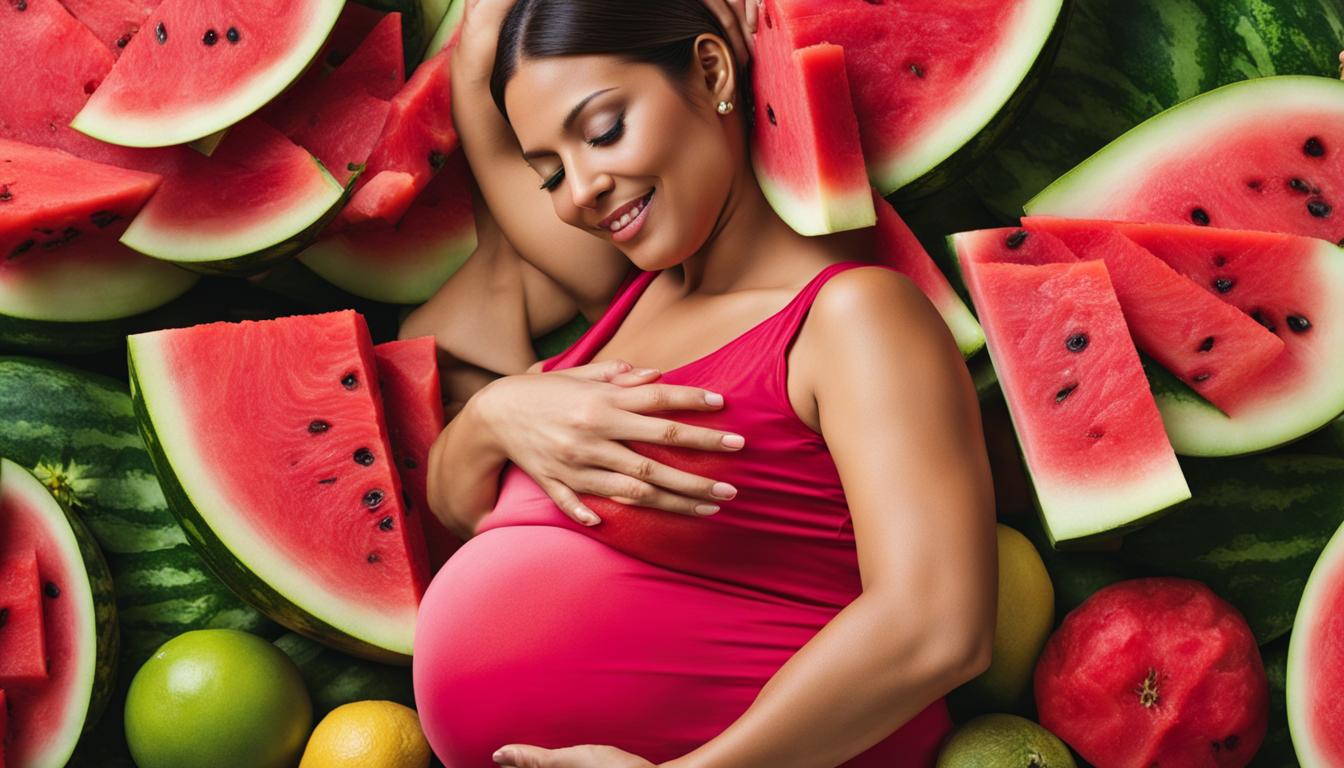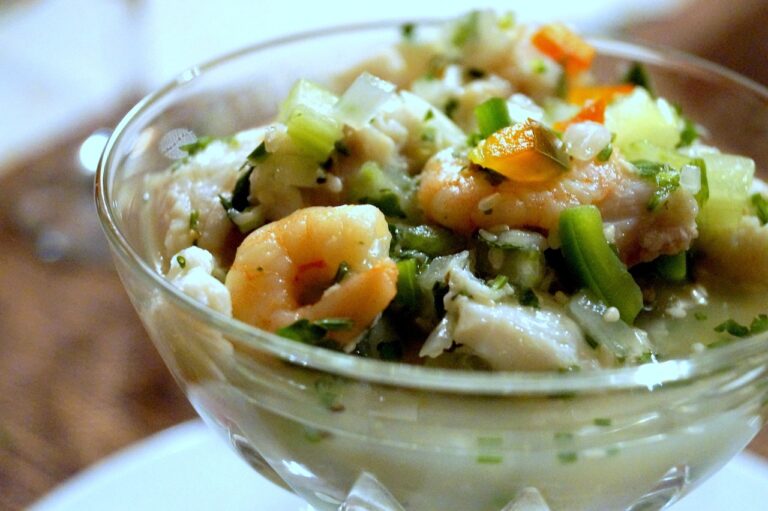Eating Watermelon While Pregnant: Benefits & Precautions
Indulging in the cool, crisp sweetness of watermelon isn’t just a summertime preference—it’s a nourishing option for pregnant women seeking to enrich their prenatal diet. When it comes to eating watermelon during pregnancy, this hydrating fruit offers a myriad of benefits that extend beyond its delightful taste. Packed with essential nutrients and antioxidants, watermelon has become a staple in many pregnancy diet watermelon plans. However, like with any dietary choice during these precious months, understanding the balance between prenatal watermelon consumption and watermelon and pregnancy safety is key to optimizing maternal and fetal health.
Skip To The Following Sections
- Understanding the Nutritional Value of Watermelon for Pregnant Moms
- Exploring the Health Advantages of Watermelon in Pregnancy
- Conclusion: The Refreshing Choice for Pregnancy Nutrition
- FAQ
- Is it safe to eat watermelon while pregnant?
- What are the benefits of eating watermelon during pregnancy?
- Can watermelon help with pregnancy hydration needs?
- Are there any nutritional concerns with eating watermelon for pregnant women?
- What is the importance of lycopene and lutein in watermelon for fetal development?
- Can eating watermelon contribute to pregnancy weight gain?
- How should watermelon be prepared to ensure safety during pregnancy?
- Are watermelon cravings common during pregnancy?
- Source Links
Key Takeaways
- High water content in watermelon aids in hydration, which is crucial during pregnancy.
- Vital nutrients like vitamin C and copper in watermelon support prenatal health.
- The antioxidants lutein and lycopene may contribute to the prevention of certain pregnancy complications.
- Watermelon is generally safe for pregnant women, but those with gestational diabetes should moderate intake.
- Proper handling and consumption of watermelon minimize food poisoning risks.
Understanding the Nutritional Value of Watermelon for Pregnant Moms

During pregnancy, the quest for optimal nutrition often leads expectant mothers to seek out foods loaded with essential vitamins, minerals, and hydration. Watermelon stands out as a significant source of nutrition for pregnant moms, famously known for its high water content and a plethora of vitamins and minerals that cater to prenatal needs. Unraveling the watermelon nutritional benefits during pregnancy reveals why this fruit is more than just a refreshing snack—it’s a powerhouse of prenatal nourishment.
Watermelon is not just refreshing, but it is stacked with an array of important nutrients, making it a smart addition to a pregnancy diet plan.
An impressive aspect of watermelon’s nutrient profile is its capacity to address the increased hydration needs of pregnant women. Each cup of this juicy fruit contains about 91% water, a characteristic that aids immensely in maintaining adequate blood circulation and balanced amniotic fluid levels. This natural hydration is not just essential for the pregnant mother’s well-being but also vital for the baby’s development.
Examining closer, a single serving of watermelon can offer substantial nutritional value:
- Approximately 46 calories, contributing to a healthy caloric intake without excess weight gain.
- A gram of protein to support the development of fetal tissues.
- Minimal fat content, ensuring that energy is derived from healthier sources.
- An appreciable 12 grams of carbohydrates, providing the energy necessary to sustain pregnancy demands.
- 14% of the Daily Value of vitamin C, which not only fortifies the immune system but also can play a role in the production of collagen, vital for the baby’s skeletal formation.
- A noteworthy contribution of pro-vitamin A (5% DV), imperative for fetal growth and vision development.
Moreover, watermelon isn’t just about vitamins—it’s also a source of crucial minerals. The presence of copper and pantothenic acid, or vitamin B5, can have a marked impact on the overall health of both mother and child. These nutrients contribute to numerous physiological processes ranging from supporting maternal energy levels to forming certain hormones.
While the spotlight often shines brightly on the vitamins in watermelon, it’s necessary to acknowledge the full spectrum of its nutritional profile. Watermelon’s bounty includes beneficial plant compounds such as lycopene and lutein, antioxidants known for their potential to support eye health and possibly play a role in ameliorating the risk of certain pregnancy-related complications.
Understanding the intricate tapestry of minerals in watermelon and its comprehensive nutrient density underscores the fruit’s relevance in prenatal diets. Watermelon’s ability to provide a concentrated dose of crucial nutrients while also keeping pregnant moms well-hydrated makes it a noteworthy selection for those aiming to optimize prenatal health.
Thus, with the right precautions and balanced consumption, watermelon can indeed be a treasured component of the diet, weaving into the daily routine of pregnant moms seeking a fusion of flavor and nutrition.
Exploring the Health Advantages of Watermelon in Pregnancy
The consumption of watermelon during pregnancy not only carries the promise of a refreshing snack, but it also holds a spectrum of health advantages for both the mother and the developing fetus. Let’s dive into how this fruit plays a pivotal role in pregnancy hydration needs, combating nutritional deficiencies, and supporting fetal development through its rich repository of antioxidants.

Hydration and Watermelon’s Role in Preventing Pregnancy-Related Complications
Meeting the body’s increased demand for fluids is a common challenge in pregnancy, making hydration a top priority for expectant mothers. Watermelon, being a hydrating powerhouse, is a delicious way to meet these hydration during pregnancy goals. Its substantial water content can aid in:
- Enhancing blood volume.
- Supporting appropriate levels of amniotic fluid.
- Lowering the likelihood of dehydration-related pregnancy complications.
Given its 91% water constitution, watermelon stands out amongst the recommended fruits for preventing pregnancy complications attributed to inadequate hydration.
Such hydration directly translates into reduced risks of constipation, hemorrhoids, and preterm delivery – all significant concerns for pregnant women. While benefits of eating watermelon during pregnancy resonate well with the goals of prenatal nutrition, moderation remains essential to avoid excessive pregnancy weight gain.
How Antioxidants in Watermelon Can Benefit Pregnant Women
The fruit’s rich assortment of antioxidants, notably lycopene and lutein, forge paths to enhance prenatal wellness. These potent antioxidants in watermelon are celebrated for their ability to:
- Promote a healthy heart, brain, and vision development in the fetus.
- Provide a shield against potential cell damage and disease.
Consuming watermelon provides a boost of these antioxidants, potentially contributing to a lower incidence of prenatal complications.
Although current studies offer varying conclusions on the definitive impact of lycopene in preventing pregnancy complications like preeclampsia, the overlap of nutrients in watermelon with the needs of a pregnancy diet is undeniable.
The Importance of Lycopene and Lutein for Fetal Development
Particular emphasis on the roles of lycopene and lutein reveals their importance in securing a healthy trajectory for fetal growth. Not only are these antioxidants integral to visual and cognitive development, but they also orchestrate critical functions in the overall maturation of the fetus.
- Stabilizing fetal growth and minimizing developmental risks.
- Supporting maternal-fetal circulation with the potential to reduce preeclampsia risks.
- Enhancing the structural development of the fetal heart and eyes, central to lycopene and fetal development.
Tying in the above attributes, watermelon emerges as a fruit that supports lutein benefits in pregnancy—making it a worthwhile addition to the prenatal diet.
In summary, watermelon not only provides a delightful treat but also imparts substantial nutritional benefits for both mother and child during pregnancy. Its inclusion as part of a balanced diet could be instrumental in fostering optimal prenatal health, graceful adaptation to bodily changes, and successful fetal development.
Conclusion: The Refreshing Choice for Pregnancy Nutrition
As we’ve navigated through the assorted slices of benefits and cautions, it’s clear that watermelon cravings during pregnancy might be more than just a call for something sweet and hydrating. This fruit’s bounty—rich in vitamins, antioxidants, and water—offers a symphony of health benefits for pregnant women, underpinning the reasons why so many expectant mothers reach for a crisp wedge. With evidence suggesting potential roles in reducing the risk of preeclampsia and improving overall maternal-fetal well-being, watermelon stands out in the prenatal nutritional landscape.
Addressing the question, “is it safe to eat watermelon during pregnancy?” the resounding response leans towards yes, with the caveat of mindful consumption, especially in the context of gestational diabetes. It’s the balance that’s crucial—indulging in watermelon to tap into its hydrating excellence and nutrient density, while also being aware of portion sizes and the freshness of the fruit to circumvent any food safety issues.
In the pantheon of pregnancy nutrition, watermelon occupies a sweet spot of both delight and nourishment. Though more research could further solidify its standing, the groundwork laid by current scientific understanding advocates for its place in a well-rounded prenatal diet. Ultimately, expectant moms seeking a refreshing, nutrient-packed choice can confidently include watermelon, complementing a diet that supports a thriving pregnancy journey.
FAQ
Is it safe to eat watermelon while pregnant?
Yes, eating watermelon is generally considered safe during pregnancy. It provides essential nutrients and hydration that can be beneficial for an expectant mother and her baby. However, moderation is key, and it’s crucial for women with gestational diabetes or preexisting diabetes to monitor their intake.
What are the benefits of eating watermelon during pregnancy?
Eating watermelon during pregnancy can help improve hydration, which is essential for amniotic fluid levels and supporting blood volume. Its rich vitamin and antioxidant content, including vitamin C, lycopene, and lutein, can support fetal development and may reduce the risk of pregnancy complications like preeclampsia and preterm birth. Additionally, watermelon may alleviate symptoms such as morning sickness and constipation.
Can watermelon help with pregnancy hydration needs?
Yes, watermelon is approximately 91% water, making it an excellent source of hydration which is especially important during pregnancy to help meet increased fluid needs, maintain blood circulation, and reduce the risk of several hydration-related pregnancy complications.
Are there any nutritional concerns with eating watermelon for pregnant women?
Watermelon is generally nutritious and safe for pregnant women. However, because it contains natural sugars and is low in fiber, it can cause blood sugar levels to rise quickly. This is a concern for women with gestational diabetes or those who have trouble controlling their blood sugar.
What is the importance of lycopene and lutein in watermelon for fetal development?
Lycopene and lutein are antioxidants present in watermelon that play a vital role in the development of the baby’s eyes, brain, and heart. Although more research is needed, there is potential that lycopene can lower the risk of preeclampsia and provide other benefits during pregnancy.
Can eating watermelon contribute to pregnancy weight gain?
Watermelon is low in calories, containing only 46 calories per cup, and is fat-free, so it is unlikely to contribute significantly to pregnancy weight gain when consumed in moderation as part of a balanced diet.
How should watermelon be prepared to ensure safety during pregnancy?
To prevent the risk of foodborne illness, watermelon should be washed thoroughly before cutting. Consume it soon after slicing or store it in the refrigerator to minimize the risk of contamination.
Are watermelon cravings common during pregnancy?
Yes, watermelon cravings are common during pregnancy. Cravings can be due to a variety of reasons, including the body’s need for extra hydration or for specific nutrients that watermelon provides, such as vitamin C and antioxidants.










